Manufacturing, Characterization and Applications of Monoclonal Antibodies
The mission of CRS-IC is to promote education, create awareness, and to encourage scientific research towards the creation of intellectual wealth in the area of drug delivery systems in India. In an attempt to fulfill our mission, we have planned A National Level Workshop on “Manufacturing, Characterization, and Applications of Monoclonal Antibodies” on Saturday, 10th October 2020.
The recent years have seen phenomenal growth in the field of research and commercialization of monoclonal antibody-based therapeutics. With the right confluence of Pharmacy and Biotechnology, this field is set to progress by leaps and bounds. The workshop is hence designed to provide insight into the development, manufacturing, and applications of monoclonal antibody-based formulations.
Please find attached the flyer of the workshop and the link for registration.
E-certificates shall be provided to the participants upon successful completion of the workshop.
Click here to provide us with your valuable feedback post-event.
Abstracts and Speaker Profiles
Title of the talk: Development of human monoclonal antibodies
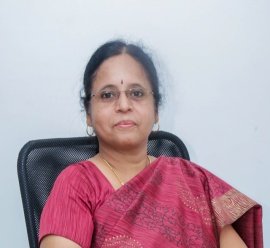 |
Brief profile: Dr. K. Rajeshwari, Founder and Managing Director of Bioklone Biotech Private Limited, Chennai, India is a scientist turned entrepreneur. She obtained her Ph.D from Indian Institute of Science (IISc), Bangalore, India. She was a Post-Doctoral Fellow at Thomas Jefferson University, Philadelphia, USA and a Visiting Fellow at Tata Institute of Fundamental Research (TIFR), Mumbai, India before inception of Bioklone in 2006. Rajeshwari has been a resource person for several Entrepreneurship development programmes and has been a mentor for aspiring and start-up entrepreneurs. In 2015, Entrepreneurship Development Institute of India (EDII), Gandhi Nagar, Gujarat, India under the Aegis of Department ofScience & Technology published Dr. Rajeshwari’s case study in the science and technology space of a book entitled “The Innovators-Stories of Hi-tech Entrepreneurs”. |
Abstract of the talk
Ever since the development of hybridoma technology in 1975 by Kohler and Milstein, the use of monoclonal antibodies (mAbs) has become one of the major breakthroughs in medicine.Following the approval of the first therapeutic antibody in 1986 by the FDA; the production and uses of antibody therapeutics have dramatically changed. The emergence and evolution of antibody platforms designed to produce mouse chimeric, humanized and finally human antibodies was a result of the early recognition of the potential of mAbs as targeted therapeutics.
A mAb is derived from a single clone of cells and recognizes a unique antigenic determinant.
Murine mAbs are obtained from murine hybridomas produced by fusion of B lymphocytes from immunized mice or rats with murine myeloma cells. MAbs are routinely used in biochemistry, molecular and cellular biology, and medical research. One of the most beneficial applications of mAbs is their use as therapeutic drugs for the treatment of human diseases, such as cancer, asthma, arthritis, psoriasis, Crohn’s disease, transplant rejection, migraine headaches and infectious diseases.
The first successful human mAb (hmAb) with predefined specificity was developed in 1980;
through the fusion of human spleen cells from patients with human myelomas. Since then,
several methods have been established to generate hmAbs. These include (1) immortalization of antigen-specific human B cells; (2) acquisition of antigen-specific human B cells via phage display technology; (3) the production of hmAbs from transgenic mice; and (4) single human B cell cloning techniques to directly clone and express immunoglobulin (Ig) genes in vitro from antigen-specific B cells.
One of the major challenges in the development of hmAbs is the generation of human hybridoma cell lines of acceptable stability. It is also difficult in most cases to obtain antigen-primed human B lymphocytes suitable for fusions. To circumvent this, alternative strategies have been devised for the production of hmAbs, including (1) Fusion of human B lymphocytes with a murine myeloma or hybrid human-murine myeloma cell line; (2) Fusion of human B lymphocytes with a human lymphoblastoid cell line; (3) Transformation of human B lymphocytes with Epstein-Barr virus (EBV); and (4) Fusion of an EBV-transformed human B lymphocyte line with a mouse myeloma cell line.
The mAb market is growing at an increasing pace. Important advances in antibody engineering along with a greater understanding of the immunomodulatory properties of antibodies, have paved the way for the next generation of new and improved antibody-based drugs for the treatment of human diseases.
Title of the talk: Basics of Monoclonal Antibodies Drug Development
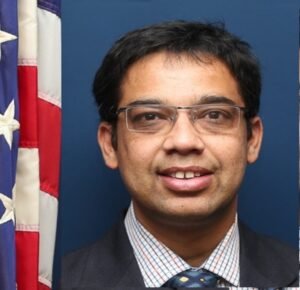 |
Brief profile: DrSuneetShukla is a pharmacist with Ph.D. in Molecular Pharmacology from Jawaharlal Nehru University, New Delhi, India. He completed his postdoctoral training at National Cancer Institute, NIH. He then joined FDA and has worked at the Office of Pharmaceutical Quality and the Office of Generic drugs where his responsibilities included the assessment of INDs, NDAs, ANDAs. Currently, he is working as Senior Pharmacologist at the Office of Clinical Pharmacology. DrShukla possesses years of highly specialized research and regulatory experience in PK/PD data analysis, in vitro drug release and dissolution analysis, bioequivalence determination, IVIVC model development and validation analysis for SUPAC changes or biowaiver applications, quantitative modeling and simulation analysis for small and large molecules from early to late drug development phase, drug-drug or drug-excipient interactions using transporter mediated IVIVE-PBPK model to understand drug absorption and oral bioavailability, DDIs (induction and competitive inhibition for liver, intestine, kidney) and pharmacogenomics in drug interactions.
DrShukla is on the Editorial Board of the Journal of Anticancer Research updates, serves as a peer reviewer for several journals, has published several highly cited research and review articles and has received patents and scientific awards from FDA and NIH. He has served on panels evaluating research grants submitted to NIH and FDA, mentored several undergraduate, graduate and post-doctoral trainees and currently serves as the lead instructor of the medical pharmacology course at the Foundation for Advanced Education in the Sciences (FAES) Graduate School, NIH. |
Abstract of the Talk: Biological products are large, highly complex molecules derived from living cells or organisms and are the fastest growing class of therapeutic products in the United States. There are many types of biological products approved, including therapeutic proteins, monoclonal antibodies, and vaccines. The talk will focus on the characterization of monoclonal antibodies as drugs and important aspects of preclinical and clinical development of antibody drug development. Biosimilars, a class of biologic drugs that are highly similar to the reference product and can be approved under an abbreviated 351(k) biosimilar development pathway will also be discussed. Further, the concept of not independently establishing the safety and effectiveness of the biosimilar product and demonstration of no clinically meaningful differences between the biosmilar product and the reference product as it applies to reducing the residual uncertainty between two products will be discussed in this session.
Title of the talk: Role of antibodies based therapeutics in the modern healthcare system
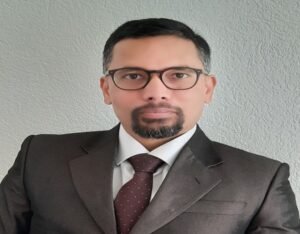 |
Brief profile: Dr. SachinDubey is presently working with Ichnos Sciences, Switzerland as Deputy Director & Head of the Formulation, Analytical & Drug Product Development. His current responsibilities include designing & executing product development & characterization strategies for both early & late-stage products for Ichnos Biologics. Sachin earned his Ph.D. from the University of Geneva, Switzerland & has previously worked with Glenmark Pharmaceuticals, Switzerland &NovozymesBiopharma, Denmark. He has ~ 12 years of experience in biopharmaceutical formulation & combinational product development. Twelve products developed by him & his team are currently in different clinical trials, he has overseen the production of >75 drug product/diluent/diluent for clinical trial phases 1-3. He has extensive experience with regulatory submissions in the USA, EU & India and have 9 PCT patent applications, ~ 20 publications in high impact journals like JCR etc., 6 book chapters & ~ 60 presentations to his credit. He also has received 20 research awards including prestigious industry awards from Glenmark (Best innovation team – won twice), Merck (Innovation cup), Novartis (International bio-camp) & Swiss Society of Pharmaceutical Sciences (Best publication). |
Abstract of the Talk: Monoclonal antibodies have made a significant impact on the management of several indications; many of them are now the first-line treatment for different oncology and autoimmune conditions. By virtue of being large, they are capable of not only binding to the target but also possess additional secondary functions – longer half-life by virtue of FcRn binding and ADCC/CDC being the most important. The roles of these additional functionalities are critical for their use in certain indications like oncology. Examples highlighting the impact of monoclonal antibody in the management of oncology/autoimmune conditions will be discussed. The development of antibody-drug conjugates (ADC’s) is another application of antibodies that will be discussed. Recent developments like bispecific and multi-specific antibodies and their promising applications will be highlighted. Producing monoclonal antibodies is a lengthy process and are often costly, however, the acceptance of biosimilars by regulatory agencies worldwide is expected to foster efforts in cost reduction and reach to the patient. Finally, the antibodies also find applications outside therapeutics ex. in diagnostics, purification etc. These additional applications will be summarized
Speakers
-
 Dr. K. RajeshwariFounder and Managing Director, Bioklone Biotech Private Limited, Chennai, India
Dr. K. RajeshwariFounder and Managing Director, Bioklone Biotech Private Limited, Chennai, IndiaDr. K. Rajeshwari, Founder and Managing Director of Bioklone Biotech Private Limited, Chennai, India is a scientist turned entrepreneur. She obtained her Ph.D from Indian Institute of Science (IISc), Bangalore, India. She was a Post-Doctoral Fellow at Thomas Jefferson University, Philadelphia, USA and a Visiting Fellow at Tata Institute of Fundamental Research (TIFR), Mumbai, India before inception of Bioklone in 2006. Rajeshwari has been a resource person for several Entrepreneurship development programmes and has been a mentor for aspiring and start-up entrepreneurs. In 2015, Entrepreneurship Development Institute of India (EDII), Gandhi Nagar, Gujarat, India under the Aegis of Department of
Science & Technology published Dr. Rajeshwari’s case study in the science and technology space of a book entitled “The Innovators-Stories of Hi-tech Entrepreneurs”. -
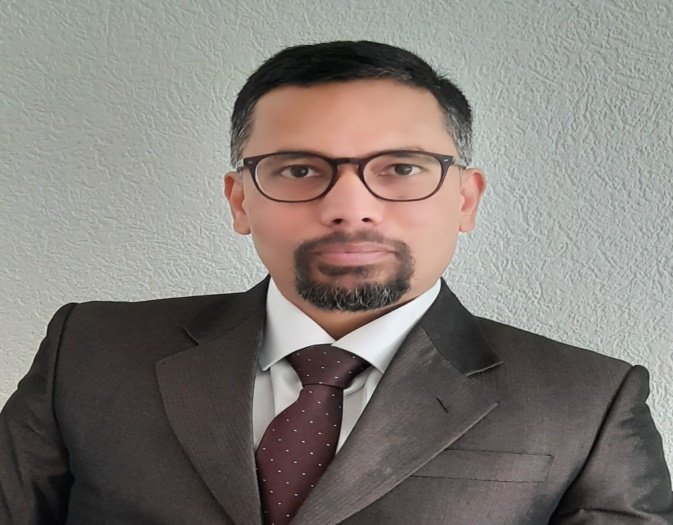 Dr. Sachin DubeyDeputy Director & Head of the Formulation Analytical Development, Ichnos Sciences, Switzerland
Dr. Sachin DubeyDeputy Director & Head of the Formulation Analytical Development, Ichnos Sciences, SwitzerlandDr. SachinDubey is presently working with Ichnos Sciences, Switzerland as Deputy Director & Head of the Formulation, Analytical & Drug Product Development. His current responsibilities include designing & executing product development & characterization strategies for both early & late-stage products for Ichnos Biologics. Sachin earned his Ph.D. from the University of Geneva, Switzerland & has previously worked with Glenmark Pharmaceuticals, Switzerland &NovozymesBiopharma, Denmark. He has ~ 12 years of experience in biopharmaceutical formulation & combinational product development. Twelve products developed by him & his team are currently in different clinical trials, he has overseen the production of >75 drug product/diluent/diluent for clinical trial phases 1-3. He has extensive experience with regulatory submissions in the USA, EU & India and have 9 PCT patent applications, ~ 20 publications in high impact journals like JCR etc., 6 book chapters & ~ 60 presentations to his credit. He also has received 20 research awards including prestigious industry awards from Glenmark (Best innovation team – won twice), Merck (Innovation cup), Novartis (International bio-camp) & Swiss Society of Pharmaceutical Sciences (Best publication).
-
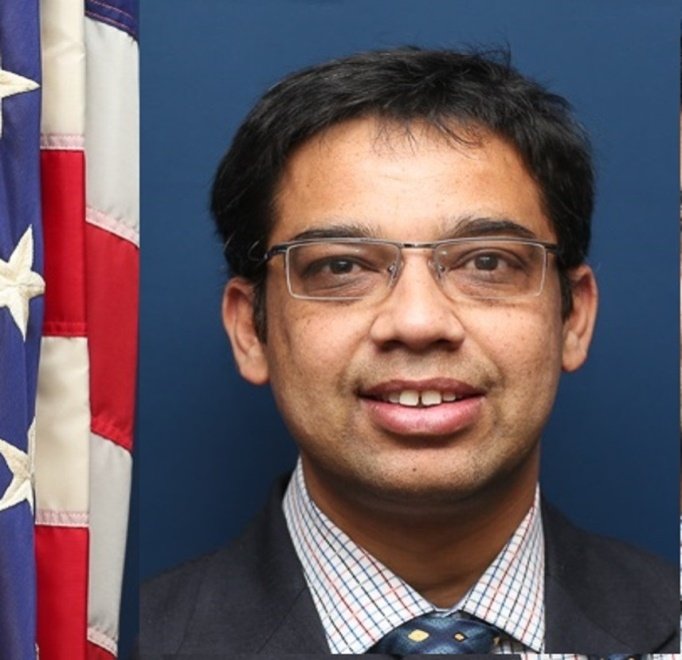 Dr. Suneet ShuklaSenior Pharmacologist at FDA Washington D.C. Metro Area
Dr. Suneet ShuklaSenior Pharmacologist at FDA Washington D.C. Metro AreaDr Suneet Shukla is a pharmacist with Ph.D. in Molecular Pharmacology from Jawaharlal Nehru University, New Delhi, India. He completed his postdoctoral training at National Cancer Institute, NIH. He then joined FDA and has worked at the Office of Pharmaceutical Quality and the Office of Generic drugs where his responsibilities included the assessment of INDs, NDAs, ANDAs. Currently, he is working as Senior Pharmacologist at the Office of Clinical Pharmacology. DrShukla possesses years of highly specialized research and regulatory experience in PK/PD data analysis, in vitro drug release and dissolution analysis, bioequivalence determination, IVIVC model development and validation analysis for SUPAC changes or biowaiver applications, quantitative modeling and simulation analysis for small and large molecules from early to late drug development phase, drug-drug or drug-excipient interactions using transporter mediated IVIVE-PBPK model to understand drug absorption and oral bioavailability, DDIs (induction and competitive inhibition for liver, intestine, kidney) and pharmacogenomics in drug interactions.
DrShukla is on the Editorial Board of the Journal of Anticancer Research updates, serves as a peer reviewer for several journals, has published several highly cited research and review articles and has received patents and scientific awards from FDA and NIH. He has served on panels evaluating research grants submitted to NIH and FDA, mentored several undergraduate, graduate and post-doctoral trainees and currently serves as the lead instructor of the medical pharmacology course at the Foundation for Advanced Education in the Sciences (FAES) Graduate School, NIH.
